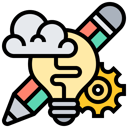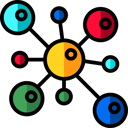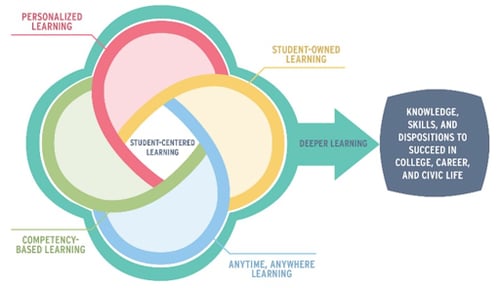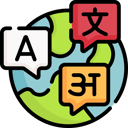OUR CURRICULUM
DELIVERING A FUTURE-READY US CURRICULUM
VERSO follows an American curriculum education aligned with the New York State Learning Standards with an emphasis on learning that is interdisciplinary, project-based, and personalized.
OUR CURRICULUM
VERSO is a pioneering, innovative American international school with a progressive American curriculum focused on future-ready skills that prepares learners for the dynamic evolving landscape their future will bring. Our International School, follows a curriculum aligned to the New York State Learning Standards that has been redesigned into VERSO’s own Future-Ready curriculum.
Specific Advanced Placement (AP) courses are available for learners who wish to supplement their personalized pathway using university-level material through single subject courses. Our current AP offerings include STEAM based courses such as Biology, Physics, Computer Science, Psychology, 2D Art & Design, 3D Art & Design, Drawing, Statistics, and Precalculus.
We deliver a comprehensive, robust, and challenging academic curriculum from Early Years (Kindergarten) to Grade 12 (High School). Our focus is on the development and application of skills and knowledge that our learners need to thrive in the increasingly disrupted and unpredictable future. Learning at VERSO is interdisciplinary, project-based, and personalized.

BEYOND TRADITIONAL

LEARNING STANDARDS
These are the main curricular domains of study covered by the New York State Learning Standards:
- English Language Arts (ELA)
- Mathematics
- Physical Education
- Arts
- Science
- Social Studies
- Computer Science and Digital Fluency
- Languages Other than English
- Technology Education
- Health
- Family and Consumer Science

FUTURE-READY CURRICULUM
-


DESIGN THINKING
Design Thinking is a mindset that we want our learners and Learning Designers to develop and practice at VERSO.
DESIGN THINKING
Design Thinking is a mindset that we want our learners and Learning Designers to develop and practice at VERSO. Inspired by the work of IDEO, the world’s leading design and innovation company and their human-centered approach to design-thinking, we have developed our own simple framework. As a school with a progressive US curriculum driven by design, this framework will guide us in our actions and behaviors.
Studies have shown that Design Thinking increases student engagement and achievement. This process empowers students to take ownership over their learning and they are able to make meaningful connections to what they learn in the classroom and how it relates to their lives. Design Thinking encourages creative solution-based thinking, a highly valuable and sought after skill that the students can confidently apply to any personal or professional path they choose.
-


PROJECT-BASED LEARNING
Project-based learning is transformative for learners. It empowers them to explore and discover questions that matter to them
PROJECT-BASED LEARNING
At VERSO we embrace project-based learning (PBL) as a central teaching method and our learners spend 70% of their time actively engaging in real-world and personally meaningful projects that engage them in a rigorous solution-finding process.
At the end of the project, learners are required to demonstrate, showcase, explain or exhibit their knowledge and skills to an authentic audience. Through this process, learners develop deep content knowledge as well as critical thinking, and a variety of collaborative, creative, and communicative skills.
Project-based learning is transformative for learners. It empowers them to explore and discover questions that matter to them. It builds academic knowledge, develops a wide range of skills and cultivates a positive attitude towards learning.
-


INTERDISCIPLINARY LEARNING
Interdisciplinary learning is a teaching approach that combines the curricular objectives and methods from more than one discipline focusing on a central theme, issue, problem or work.
INTERDISCIPLINARY LEARNING AND OUR LEARNING LOTUS
We understand the value of traditional academic disciplines like English Language Arts and Literacy, Mathematics, Science, Social Studies, Languages, The Arts, Physical Education and Health. We also recognise the limitations of teaching academic subjects in isolation. That’s why we’ve designed learning at VERSO to be interdisciplinary, project-based, and learner-centered.

At VERSO we use an interdisciplinary approach to learning.
The VERSO Learning Lotus is a visual representation of how we see the connectedness between disciplines (curriculum) and the essential skills and dispositions (creativity, collaboration, communication and self-direction).
Interdisciplinary learning activities have a number of advantages for teachers and learners:
- It allows learners to connect their learning to the real world.
- It focuses on higher-level thinking and decision making,
- It gives learners greater control of their learning and encourages them to assess and set goals for what needs to be accomplished to complete objectives; and,
- It motivates learners with the knowledge that what they are learning is relevant.
-


COMPETENCY-BASED LEARNING
Competency-based Learning (CBL) equips learners with the understanding and skills they will need to succeed in university and beyond.
COMPETENCY-BASED LEARNING
Also known as Competency-based Education (CBE)
At VERSO, we use competency-based learning (CBL) to equip learners with the understanding and skills they will need to succeed in university and beyond.
By embedding traditional content and credit requirements into a competency-based learning (CBL) model, the VERSO international primary and high school curriculum experience in Bangkok allows learners to meet today’s educational requirements while engaging in a progressive and personalized curriculum that helps them adapt to tomorrow’s expectations in an increasingly competitive and global economy. We believe that authentic learning is best demonstrated through evidence of mastery of learning outcomes, instead of hours spent inside a classroom.
In a CBE model, students are positioned at the center of the learning experience, giving them agency and ownership of their learning, providing equity within the learning space as learning plans are personalized and assessment is iterative, and empowering students to transfer their learning across multiple contexts instead of remaining siloed in only one area.

-


LANGUAGE LEARNING
Language is one of many ways we promote our three purpose pillars.
LANGUAGE LEARNING
Following an American curriculum, VERSO International School in Bangkok welcomes all learners and seeks to understand, affirm, and promote their language and cultural backgrounds. All learners have a unique language profile shaped by relationships and interactions within their own family, culture, and the wider world. The continued development of home and family languages is important for cognitive growth and nourishing cultural identity.
Language is one of many ways we promote our three purpose pillars. Whether it’s personal and cultural identity, engagement with the world, or having the confidence to lead your own journey, we recognize that languages are a really important aspect of learning at VERSO.
English is the medium of instruction at VERSO and is our primary language for communication. For languages other than English, we have a team of specialist Learning Designers supporting both Thai and Chinese (Mandarin). The Thai program is primarily a first-language program focusing on further developing learners’ literacy skills and offering second language Thai for non-Thai students. The Chinese program is a language acquisition program for second or additional language learners. Learners can request to study a third language if they are meeting expectations in English. It is expected that all learners meet a minimum of WIDA Level 5 before taking on further languages.
DESIGN THINKING
Design Thinking is a mindset that we want our learners and Learning Designers to develop and practice at VERSO. Inspired by the work of IDEO, the world’s leading design and innovation company and their human-centered approach to design-thinking, we have developed our own simple framework. As a school with a progressive US curriculum driven by design, this framework will guide us in our actions and behaviors.
Studies have shown that Design Thinking increases student engagement and achievement. This process empowers students to take ownership over their learning and they are able to make meaningful connections to what they learn in the classroom and how it relates to their lives. Design Thinking encourages creative solution-based thinking, a highly valuable and sought after skill that the students can confidently apply to any personal or professional path they choose.
PROJECT-BASED LEARNING
At VERSO we embrace project-based learning (PBL) as a central teaching method and our learners spend 70% of their time actively engaging in real-world and personally meaningful projects that engage them in a rigorous solution-finding process.
At the end of the project, learners are required to demonstrate, showcase, explain or exhibit their knowledge and skills to an authentic audience. Through this process, learners develop deep content knowledge as well as critical thinking, and a variety of collaborative, creative, and communicative skills.
Project-based learning is transformative for learners. It empowers them to explore and discover questions that matter to them. It builds academic knowledge, develops a wide range of skills and cultivates a positive attitude towards learning.
INTERDISCIPLINARY LEARNING AND OUR LEARNING LOTUS
We understand the value of traditional academic disciplines like English Language Arts and Literacy, Mathematics, Science, Social Studies, Languages, The Arts, Physical Education and Health. We also recognise the limitations of teaching academic subjects in isolation. That’s why we’ve designed learning at VERSO to be interdisciplinary, project-based, and learner-centered.

At VERSO we use an interdisciplinary approach to learning.
The VERSO Learning Lotus is a visual representation of how we see the connectedness between disciplines (curriculum) and the essential skills and dispositions (creativity, collaboration, communication and self-direction).
Interdisciplinary learning activities have a number of advantages for teachers and learners:
- It allows learners to connect their learning to the real world.
- It focuses on higher-level thinking and decision making,
- It gives learners greater control of their learning and encourages them to assess and set goals for what needs to be accomplished to complete objectives; and,
- It motivates learners with the knowledge that what they are learning is relevant.
COMPETENCY-BASED LEARNING
Also known as Competency-based Education (CBE)
At VERSO, we use competency-based learning (CBL) to equip learners with the understanding and skills they will need to succeed in university and beyond.
By embedding traditional content and credit requirements into a competency-based learning (CBL) model, the VERSO international primary and high school curriculum experience in Bangkok allows learners to meet today’s educational requirements while engaging in a progressive and personalized curriculum that helps them adapt to tomorrow’s expectations in an increasingly competitive and global economy. We believe that authentic learning is best demonstrated through evidence of mastery of learning outcomes, instead of hours spent inside a classroom.
In a CBE model, students are positioned at the center of the learning experience, giving them agency and ownership of their learning, providing equity within the learning space as learning plans are personalized and assessment is iterative, and empowering students to transfer their learning across multiple contexts instead of remaining siloed in only one area.

LANGUAGE LEARNING
Following an American curriculum, VERSO International School in Bangkok welcomes all learners and seeks to understand, affirm, and promote their language and cultural backgrounds. All learners have a unique language profile shaped by relationships and interactions within their own family, culture, and the wider world. The continued development of home and family languages is important for cognitive growth and nourishing cultural identity.
Language is one of many ways we promote our three purpose pillars. Whether it’s personal and cultural identity, engagement with the world, or having the confidence to lead your own journey, we recognize that languages are a really important aspect of learning at VERSO.
English is the medium of instruction at VERSO and is our primary language for communication. For languages other than English, we have a team of specialist Learning Designers supporting both Thai and Chinese (Mandarin). The Thai program is primarily a first-language program focusing on further developing learners’ literacy skills and offering second language Thai for non-Thai students. The Chinese program is a language acquisition program for second or additional language learners. Learners can request to study a third language if they are meeting expectations in English. It is expected that all learners meet a minimum of WIDA Level 5 before taking on further languages.
VERSO LEARNING ELEMENTS
At VERSO, a school which offers a US curriculum, we redesigned the traditional school day so our students have more time to go deeper in their learning. We have organized teaching and learning into 5 blocks of time that we call the Elements of the Day.
EXPLORE
Explore time is designed to develop learner autonomy through self-directed learning. Learners identify a focus based on personal interests while connecting goals with academic skills, dispositions, and knowledge. Explore time helps learners understand how they best learn and the possibilities that come when they are empowered to navigate their own learning journey. Our Explore experiences allow learners to pursue their passions, interests, and curiosities.
LEARNING LABS
We understand there is a time and space for focused learning to develop academic skills, dispositions, and knowledge across the curriculum. Learning Labs combine an interdisciplinary approach through project-based learning. Learning Labs are led by Learning Designers.
WORKSHOP
We understand that learning is different for every learner. Workshops are designed to develop or refine targeted mastery academic skills, dispositions, and knowledge. Workshops can be led by Learning Designers, learners, and experts in our community or beyond.
conVERSO
We believe in the power of relationships and the magic that it can create. ConVERSO is a time for Learning Designers to have a one-on-one conference with the learner. ConVERSO incorporates reflection and intentional feedback to guide learning and can be initiated by either a learner or a Learning Designer.
COMMUNITY TIME
Community Time is designed to connect, reflect, build relationships and grow a sense of belonging. Community Time is an opportunity to seek feedback and make informed decisions about next steps in the learning journey.
WELL-BEING
Developing a deep understanding of self through nurturing physical, social, and emotional health.